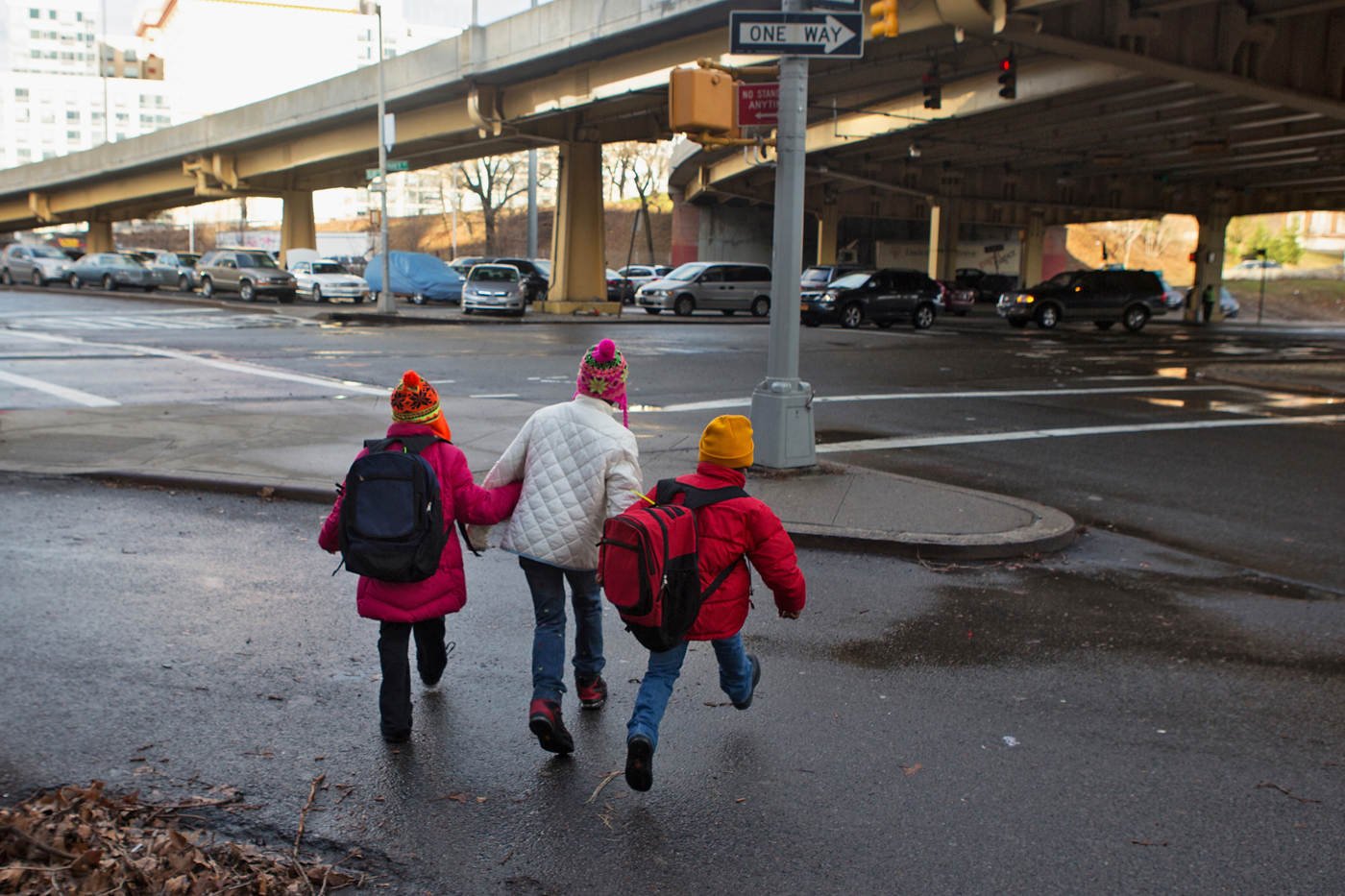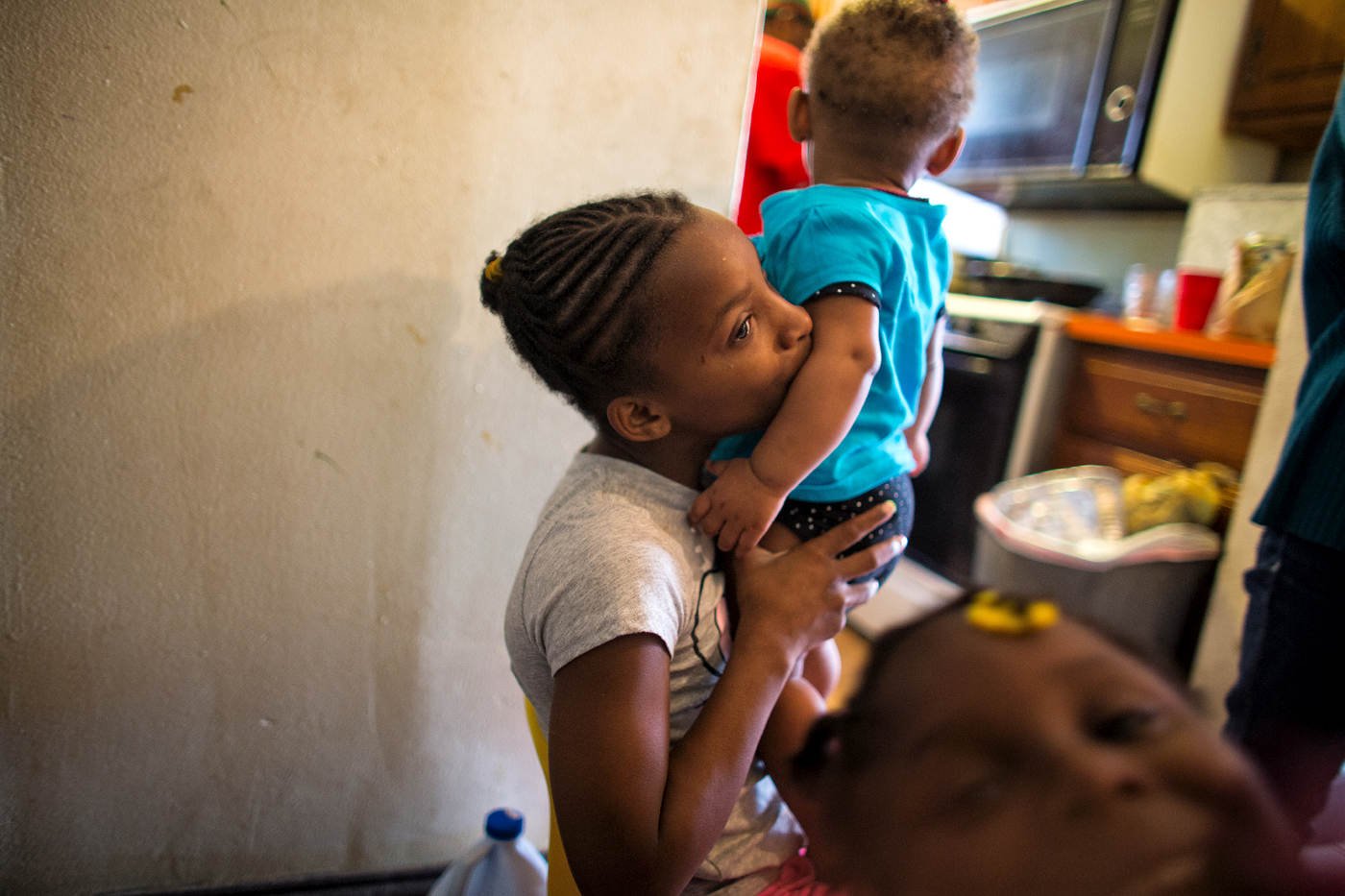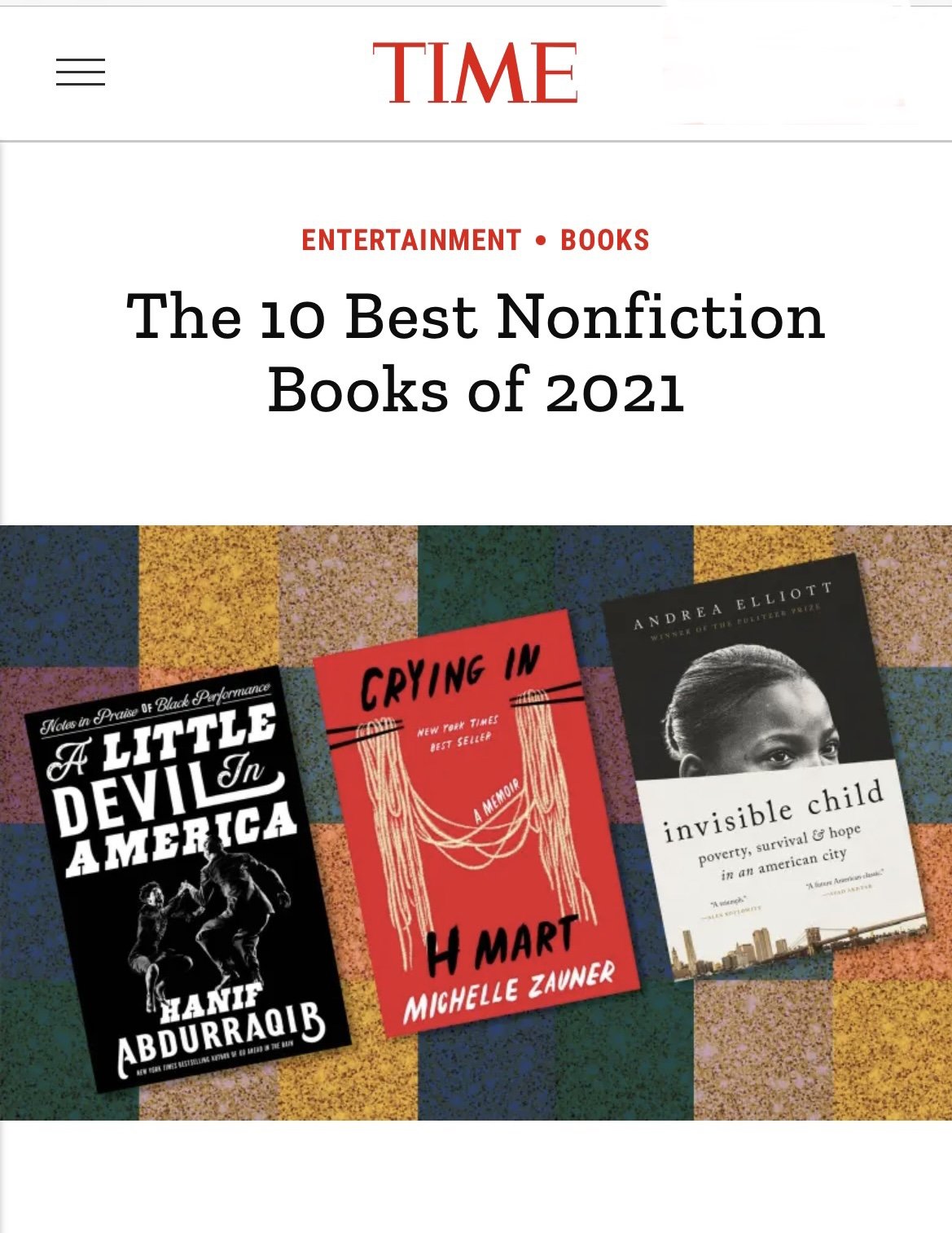Invisible Child follows eight dramatic years in the life of Dasani Coates, a child with an imagination as soaring as the skyscrapers near her Brooklyn homeless shelter. Born at the turn of a new century, Dasani is named for the bottled water that comes to symbolize Brooklyn’s gentrification and the shared aspirations of a divided city. As Dasani grows up, moving with her tight-knit family from shelter to shelter, this story goes back to trace the passage of Dasani’s ancestors from slavery to the Great Migration north. By the time Dasani comes of age, New York City’s homeless crisis is exploding as the chasm deepens between rich and poor.
Photos by Ruth Fremson of The New York Times
In the shadows of this new Gilded Age, Dasani must lead her seven siblings through a thicket of problems: hunger, parental drug addiction, violence, housing instability, segregated schools, and the constant monitoring of the child-protection system. When, at age thirteen, Dasani enrolls at a boarding school in Pennsylvania, her loyalties are tested like never before. As she learns to “code switch” between the culture she left behind and the norms of her new town, Dasani starts to feel like a stranger in both places. Ultimately, she faces an impossible question: What if leaving poverty means abandoning the family you love?
By turns heartbreaking and revelatory, provocative and inspiring, Invisible Child tells an astonishing story about the power of resilience, the importance of family, and the cost of inequality. Based on nearly a decade of reporting, this book vividly illuminates some of the most critical issues in contemporary America through the life of one remarkable girl.
“Unflinching, tenacious reporting... A vivid and devastating story of American inequality.”
Reviews
The New York Times:
Dasani Showed Us What It’s Like to Grow Up Homeless. She’s Still Struggling
NPR:
'Invisible Child' tells the story of childhood homelessness in America
Sunday Times:
Invisible Child by Andrea Elliott Review: A Classic to Rank with Orwell
Washington Post:
The Story of One New York Girl and the Precarious Lives of the Poor
Financial Times:
Invisible Child - an indelible portrait of poverty in America
Publisher’s Weekly *Starred Review*
Invisible Child: Poverty, Survival & Hope in an American City
The Atlantic:
Five of the Best Books of 2021
Los Angeles Times:
10 Books to Help You Understand Inequality — And Possible Solutions
Time Magazine:
“What easily could have been, in lesser hands, voyeuristic or sensational is instead a rich narrative, empathetically told. Elliott is a masterful storyteller.”
Book Club
Guided questions for Invisible Child are available to download here.
The Playlist
Music is central to Dasani’s story. Here are the songs of Invisible Child:
“A masterpiece. ”
“Invisible Child is one of the most extraordinary and powerful books I’ve read.”
“Elliott has achieved a towering feat of reporting that paints, layer by layer, an extraordinary portrait of a child, a family, a city, and the nation that produced them. From start to finish, she sustains an insatiably curious and deeply empathetic focus on worlds that so many people work hard, if mostly unconsciously, to never really see.”
“Andrea Elliott’s Invisible Child swept me away. Filled with unexpected twists and turns, Dasani’s journey kept me up nights reading. Elliott spins out a deeply moving story about Dasani and her family, whose struggles underscore the stresses of growing up poor and Black in an American city, and the utter failure of institutions to extend a helping hand. Invisible Child is a triumph.”
“Bringing the struggles of the poor to the public eye is one of journalism’s highest callings, and Invisible Child takes its place alongside There Are No Children Here and Random Family.”
“Searing... This transformative true story of resilience and the cost of equality will haunt you long after you turn the last page.”
“Elliott’s book is a triumph of in-depth reporting and storytelling. It is a visceral blow-by-blow depiction of what ‘structural racism’ has meant in the lives of generations of one family. But above all else it is a celebration of a little girl—an unforgettable heroine whose frustration, elation, exhaustion, and intelligence will haunt your heart.”




